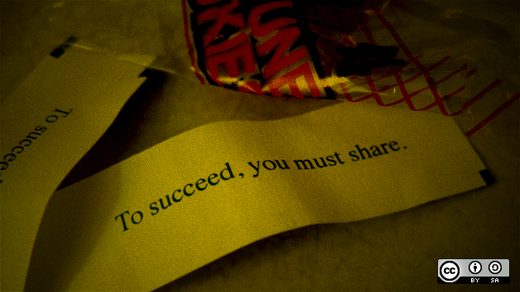It is now pretty well accepted that open source is a superior way of producing software. Almost everyone is doing open source these days. In particular, the ability for users to look under the hood and make changes results in tools that are better adapted to their workflows. It reduces the cost and risk of finding yourself locked in with a vendor in an unbalanced relationship. It contributes to a virtuous circle of continuous improvement, blurring the lines between consumers and producers. It enables everyone to remix and invent new things. It adds up to the common human knowledge.
And yet
And yet, a lot of open source software is developed on (and with the help of) proprietary services running closed-source code. Countless open source projects are developed on GitHub, or with the help of JIRA for bug tracking, Slack for communications, Google Docs for document authoring and sharing, Trello for status boards. That sounds a bit paradoxical and hypocritical—a bit too much "do what I say, not what I do." Why is that? If we agree that open source has so many tangible benefits, why are we so willing to forfeit them with the very tooling we use to produce it?
But it's free!
The argument usually goes like this: Those platforms may be proprietary, they offer great features, and they are provided free of charge to my open source project. Why on Earth would I go through the hassle of setting up, maintaining, and paying for infrastructure to run less featureful solutions? Or why would I pay for someone to host it for me? The trick is, as the saying goes, when the product is free, you are the product. In this case, your open source community is the product.
In the worst case scenario, the personal data and activity patterns of your community members will be sold to third parties. In the best case scenario, your open source community is recruited by force into an army that furthers the network effect and makes it even more difficult for the next open source project to not use that proprietary service.
In all cases, you, as a project, decide to not bear the direct cost, but ask each and every one of your contributors to pay for it indirectly instead. You force all of your contributors to accept the ever-changing terms of use of the proprietary service in order to participate in your "open" community.
Recognizing the trade-off
It is important to recognize the situation for what it is: a trade-off. On one side, shiny features and convenience. On the other, a lock-in of your community through specific features, data formats, proprietary protocols or just plain old network effect and habit.
Each situation is different. In some cases, the gap between the proprietary service and the open platform will be so large that it makes sense to bear the cost. Google Docs is pretty good at what it does, and I find myself using it when collaborating on something more complex than Etherpads or Ethercalcs. At the opposite end of the spectrum, there is really no reason to use Doodle when you can use Framadate. In the same vein, Wekan is close enough to Trello that you should really consider it as well. For Slack versus Mattermost versus IRC, the trade-off is more subtle.
As a side note, the cost of lock-in is a lot reduced when the proprietary service is built on standard protocols. For example, Gmail is not that much of a problem because it is easy enough to use IMAP to integrate it (and possibly move away from it in the future). If Slack was just a stellar opinionated client using IRC protocols and servers, it would also not be that much of a problem.
Part of the solution
Any simple answer to this trade-off would be dogmatic. You are not unpure if you use proprietary services, and you are not wearing blinders if you use open source software for your project infrastructure. Each community will answer that trade-off differently, based on their roots and history.
The important part is to acknowledge that nothing is free. When the choice is made, we all need to be mindful of what we gain, and what we lose. To conclude, I think we can all agree that all other things being equal, when there is an open source solution which has all the features of the proprietary offering, we all prefer to use that. The corollary is, we all benefit when those open source solutions get better.
So to be part of the solution, consider helping those open source projects build something as good as the proprietary alternative, especially when they are pretty close to it feature-wise. That will make solving that trade-off a lot easier.
This article was originally posted on ttx:reloaded and was reposted with permission under a CC BY-SA 4.0 license.




4 Comments